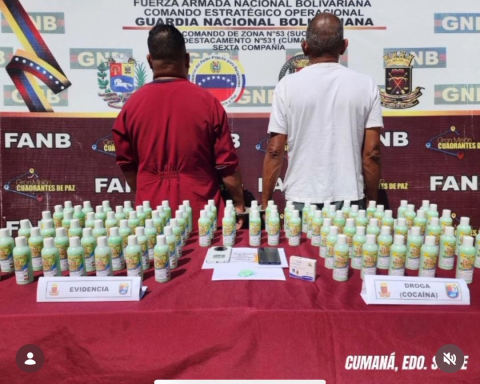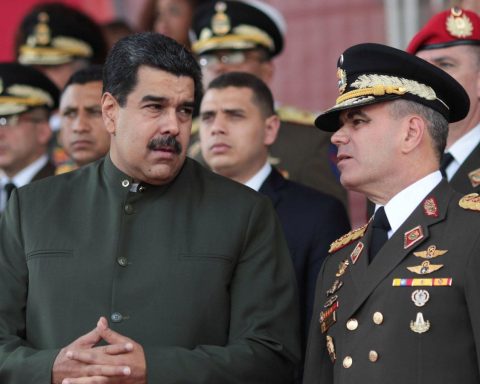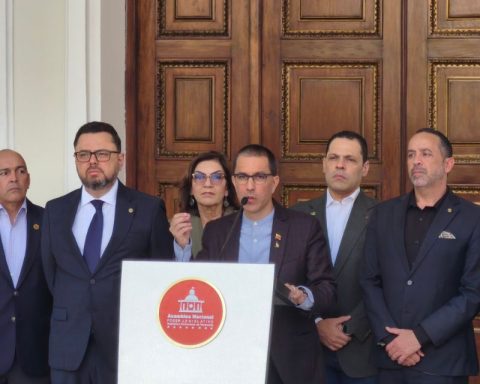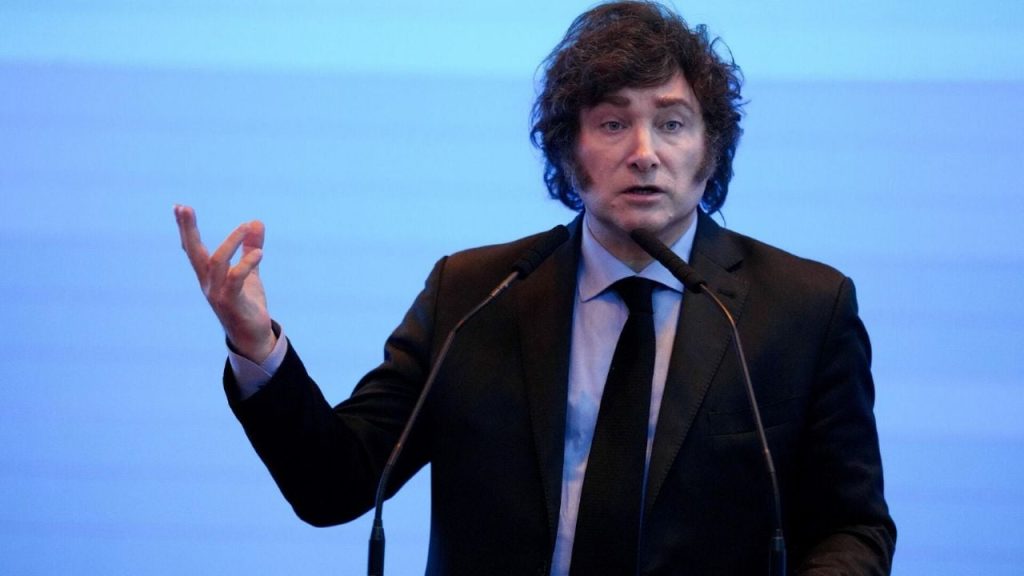This Sunday, December 15, a new electoral process will take place based on the constitutional principles of participatory and leading democracy, when more than 30,000 justices of the peace will be elected in the 5,297 communal circuits of the country.
The proposal, which is part of the actions to build communal democracy, was promoted by President Nicolás Maduro in the month of November so that the organized popular power could elect the first collegiate justices of the peace.
“I call on all public powers, the Citizen Power, the Judicial Power, the Electoral Power, the Legislative Power and we move forward with our momentum as a Revolutionary Government, to join the five powers to go to this historic moment,” he said during his speech. program Maduro Live de Suddenly.
In this sense, he stated that the model of socialist and Bolivarian democracy contrasts with the failure of Western powers and in this regard he highlighted that these measures aim to profoundly transform the Venezuelan State.
“We have to build a new, truly human civilization and Venezuela is on the path to building a humanist, Bolivarian, socialist modernity.”
The initiative also comes after the Law of Partial Reform of the Organic Law of the Special Jurisdiction of Communal Peace was published in Official Gazette No. 6,854 on November 14, which, together with the Magna Carta (article 258), It gives a legal framework to these new judicial bodies close to the population.
The purpose of the legal instrument is to promote “arbitration, conciliation and mediation as means of conflict resolution at the community level”, to promote supportive coexistence, peace and effective access to responsible, equitable and expeditious justice mechanisms.
How were they elected?
To participate as a candidate in these elections, the candidates were elected through the communal councils, after holding a grassroots popular assembly.
Others were nominated at the initiative of a social movement or other social organization belonging to the territory and, finally, some were nominated on their own initiative.
Among the requirements were that they had to be Venezuelans, over 25 years old and have at least three years of residence in the territorial area. In addition, not have a criminal record or political or administrative disqualification.
Something that must be considered is that the candidates who belong to the board of directors of any political, union or trade union organization are spokespersons for any popular power organization; if they are elected, they must renounce that condition.
Nor could they belong to any military or police body, in a situation of activity; as well as they must maintain impeccable conduct.
An essential condition is that they must respect and protect sovereignty, nationality, territorial integrity and self-determination, as well as have a deep knowledge of their environment, the territorial scope of the commune, its needs, conflicts and customs.
The final list of candidates was published on November 29, in which it was known that 52 thousand citizens were eligible by December 15.
Unpublished campaign.
The electoral campaign, which began last Wednesday, December 4, had new characteristics. To begin with, that same day, 4,681 assemblies were held in all communal circuits and 436 in indigenous communities.
The next day, the candidates had meetings with the communal councils and communities for the following days to deploy through popular communication, in order to present their proposals.
Furthermore, during the following days of the campaign, the candidates carried out the popular community sancochos, house-to-house tours, flyers, and agitation activities carrying their message and explaining the important aspects of the law that governs them and their scope of action. , as well as the important aspects of the electoral process.
The electoral campaign closed on December 13. “At Antímano we begin the electoral campaign to elect the communal justices of the peace. Carry out all your activities, the debates, the assemblies, the flipcharts, the flyers,” said then the president of the National Assembly, deputy Jorge Rodríguez, who is also a member of the National Electoral Commission.
Likewise, Rodríguez had reported that between December 9 and 15, the electoral commissions must be formed.
It is worth noting that the National Electoral Commission installed state commissions in each of the country’s 23 states that will be in charge of overseeing the process in their territories, as well as the installation of 5,000 electoral commissions in each communal circuit.
For those who wish to know more about the electoral centers, you can access the page of the Ministry of Popular Power for the Communes.
Period of functions.
After the election on December 15, those who are elected will be able to exercise their functions as communal judges of the peace for three years, according to what is established by the legislation that governs them.
In addition, they are obliged to present a semi-annual report on their actions, for which they will use conciliation as a method, an alternative means of conflict resolution, in which the parties involved present their points of view to achieve a solution to the conflict.
In conciliation, the communal judge or justice of the peace channels the dialogue between the parties.
Democratization of justice. The election of these new representatives by the bases represents a milestone in the history of the country, because it democratizes access to justice in the territories, bringing it closer to the people and transforming paradigms.
In this sense, the first vice president of the Permanent Commission for the Development of the Communes of the National Assembly, representative Blanca Eekhout, explained that this process has to do with very deep historical roots, especially with our native peoples, who had the figure of the palabrero.
“Decisions were always made based on consensus, on the search for solutions, where each and every one of us could feel recognized, vindicated and not based on the logic that prevails,” stated the parliamentarian.
It is also important, he noted, at this time when they want to sow violence to break not only nations, but also families, with the aim of destroying the individual.
“It is a scheme of domination that is based on the denial of the collective and also on the denial of the human being; That is why there are extermination plans, that is why the sowing of violence, the sowing of mechanisms such as drug trafficking, human trafficking. Everything is designed to break the unity of the people,” he emphasized.
Eekhout highlighted that in this Venezuela is going against the trend of world war, because while imperial logic is promoting war conflicts, in the country, the Government and the people are betting on peace.
“This path of peace, of life, of dialogue has to be in the territory; because each town is the protagonist, each community is the protagonist, so this, I believe, is a milestone, it is an experience,” he stated.
The parliamentarian highlighted that those citizens elected in these elections who are not in tune with the search for peace, harmony and the solution of conflicts in the community can be replaced immediately.
“And that is why (elections) are held in the territory and are done with the direct vote of the people. “Who knows the qualities of men and women that can help guarantee harmony and coexistence in this electoral process?” he highlighted.
This premise is joined by the opinion of John Lima, president of the Caracas for All party, who classified the electoral event as “something unique,” since it represents a profound transformation of the country’s judicial system.
“It seeks to democratize justice in the territories and bring peace justice to the people, something that did not exist and that is only being achieved in revolution and under the leadership of Nicolás Maduro, our constitutional president, re-elected president,” Lima said. , who highlighted that justices of the peace must be accountable for their management before the Citizens’ Assembly within their territorial space.

The candidates speak.
For those running for these elections, this is an opportunity to solve problems that can really generate discord within the communities, which often do not find a quick response within the justice system.
José Albornoz, candidate for the Western Communal Axis of the Los Teques Parish, the Suruapo Suruapay commune of the Guaicaipuro municipality in the state of Miranda, listed problems such as the dispute over property and real estate, noise or scandals, as well as the lack of respect within of the communities, which can be resolved effectively by justices of the peace.
“They are prepared, ready and willing to resolve all these conflicts and controversies in healthy peace, with justice, equity and the common good,” explained the candidate, who assures that it will guarantee due process and the right to defend principles.
River Linares, nominated by the Chávez Vive commune of the Caucagüita-Parque Caiza axis belonging to the Sucre de Miranda municipality, assured that many have received legal training through the Supreme Court of Justice to reinforce knowledge and have conciliation and mediation mechanisms to resolve any conflict.
“To exercise preventive and effective justice, in accordance with the Constitution and the law. Therefore, I call for mass participation on Sunday, December 15,” he invited.
Participating in these elections is very easy


- Voters from each territorial area who attend the polls this Sunday must choose up to three justices of the peace, with their respective substitutes, as established in article 4 of the legal instrument.
- The polling stations, which were installed on December 13, will open at 8:00 am on Sunday and, in principle, will close at 6:00 pm.
- For this election, people over 15 years of age who live in the territorial area are called to participate, and they must bring with them to the electoral center of their communal circuit their laminated identity card, which may or may not have expired. It is worth noting that voting will be manual.
- For this election, 4,817 voting centers were set up in the different communes and communal circuits.
- For those who wish to know more about the electoral process, information can be obtained through 8-800 votemos (8683667) of the National Electoral Council.
Jurisdiction of justices of the peace
- Know the conflicts or controversies that arise between natural or legal persons in their local territorial area and that have been entrusted to them to decide.
- Know the conflicts between members of the community derived from the application of ordinances relating to coexistence, communal letters, regulations of coexistence of the communal councils or instruments of a similar nature, dictated by neighborhood organizations.
- Know about conflicts or controversy between members of the community related to the operation, performance and administration of neighborhood organizations in the community.
- Act as the receiving body for complaints of cases of gender violence in the terms established in the special law that regulates the matter, and may dictate protection and security measures in favor of the victim or the family unit. You must then refer the matter to the Public Ministry in order to continue with the procedure and guarantee control of the agreed measures.
- Monitor and comply with the measures related to family coexistence and the maintenance obligation issued by the courts for the protection of children and adolescents.
- Finally, they must ensure respect for the rights of children and adolescents, adults and older adults, people with disabilities and people in vulnerable situations, taking the respective measures in accordance with the law and referring the actions to the competent body or people. .














